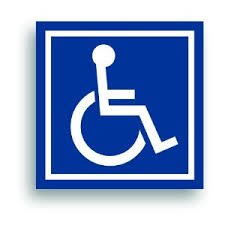Grief Support
The grief experience is different for each of us. This information is to serve as a guide following the death of a loved one. We have provided a list of natural physical and emotional reactions that you may experience, as well as things you can do to gain control and feel more whole. We hope this information will be helpful and bring you comfort.
- What You May Experience Physically
- What You May Experience Emotionally
- Things to Try for Relief and Healing
- Helpful Websites
What You May Experience Physically:
- Lack of desire to eat or desire to over-eat
- Inability to sleep
- Headaches or stomach/intestinal disorders
- Tightness in the throat or in the muscles
- Heaviness or pressure in the chest
- Visual or auditory hallucinations of the lost loved one
- Lack of energy
- Periods of nervousness or even panic
What You May Experience Emotionally:
- Overwhelmed with emotions
- Sadness and/or depression
- Mood swings
- Cry easily and/or unexpectedly
- Forgetfulness
- Inability to concentrate
- Difficulty making decisions
- Guilt or anger about things that happened or didn't happen in the relationship with the deceased
- Unexpected anger toward others, God, or the deceased
- Desire to run away, or become very busy in order to avoid the pain
- Feel uncomfortable around other people
- May not want to be alone
- Feelings of emptiness, or having been cheated
- Doubts or questions concerning why the death occurred
- Fear of what will happen next
Things to Try for Relief and Healing:
It may be a difficult time with all the changes occurring. In the past, you may have handled grief in other ways. If your previous style of grieving has not been helpful, be willing to try a different approach such as: support groups, reading and learning about grief, calling friends and family daily, and most of all, hold on to hope.
- Within the first 24 to 48 hours after the death, periods of exercise alternated with relaxation will alleviate some of the physical reactions. Move to music or walk for 20 to 30 minutes.
- Be good to yourself. Treat yourself like you would another grieving person. Remember to eat a well-balanced diet. Get plenty of rest and sleep.
- Take care of yourself physically. Go to your doctor for a check-up.
- Reach out and spend time with others. People do care.
- It is okay to tell and re-tell what happened, remembering the loved one and the experience of their death is healthy.
- Structure your time. Keep busy, but be sure the activity is meaningful. This is a good time to focus on your family and the loved one you lost.
- As you share your feelings, ask about the feelings of others.
- Keep a journal. Write your way through those sleepless hours.
- Don't make any "big" life changes (if possible).
- Be aware of numbing pain with the overuse of drugs or alcohol. Alcohol is a depressant and may interrupt your sleep pattern.
- You may or may not cry often, but when you do, realize it is okay. Don't fight the tears. "Cry when you have to and laugh when you can." Jean G. Jones
- Find support in your family and friends, but don't expect them to meet all of your needs. They are also grieving along with you.
- Realize that those around you are under stress. Try not to overreact to what is said and done.
- Don't be afraid to ask for help; we all need support. If needed, join a support group. It can make a difference in the way you grieve.
- Remember that grieving takes time and that your experiences and emotions can reoccur. Be patient with yourself and allow yourself to heal at your own pace.
Helpful Websites
Having Difficulty Coping,With The Loss Of A Loved One?
Support Is Available At "Wilson Support Center Having difficulty coping with the loss of a loved one? Support is available at the Wilson Support Center. Grief does not need to be carried alone. While grief is a natural and normal response after a death or significant loss, it may not feel accepted by the world at large. The Wilson Support Center is a place to find refuge and guidance, and provides individually customized support by licensed grief professionals as we recognize everyone copes with grief differently. Anyone is eligible to call and receive support. The Wilson Support Center provides grief support and education that is sensitive, compassionate and responsive to the needs of our community. For more information, contact The Wilson Support Center at 716 836 6460; WilsonSupportCenter.com"
www.centerforloss.com
Organization dedicated to furthering our understanding of grief. Founded by Dr. Alan D. Wolfelt
www.compassionatefriends.com
National nonprofit organization for families grieving the death of a child any age
www.fernside.org
A nonprofit, non-denominational organization serving grieving children and their families
www.dougy.org
The National Center for Grieving Children & Their Families
www.hospicenet.org
Organization dedicated to providing information and support to patients, families and friends facing life-threatening illnesses.
www.beyondindigo.com
Organization which offers chat rooms, discussions, advice columns and articles related to grief, grieving, death and dying.
suicide prevention
Crisis Numbers:
For suicide prevention in the U.S. call 1-800-273-8255
National Suicide Prevention Lifeline- http://www.suicidepreventionlifeline.org/
9-1-1
Erie County Crisis Services: 716.834.3131
Niagara County Crisis Services: 716.285.3515
Western New York Support Groups
BUFFALO
Suicide Bereavement Support Group
Life Transitions Center, Inc.
150 Bennett Road, Buffalo, NY 14227
Contact: Jen Henry, LCSW-R, 716-479-4506, jhgrieftherapy@aol.com
Meeting Place: Life Transitions Center
Meeting Day(s)/Meeting Time: 1st Tuesday of every month at 7:00 p.m.
Facilitated by: Professional
Charge: No
Counties Served: Erie, Niagara, Genesee




